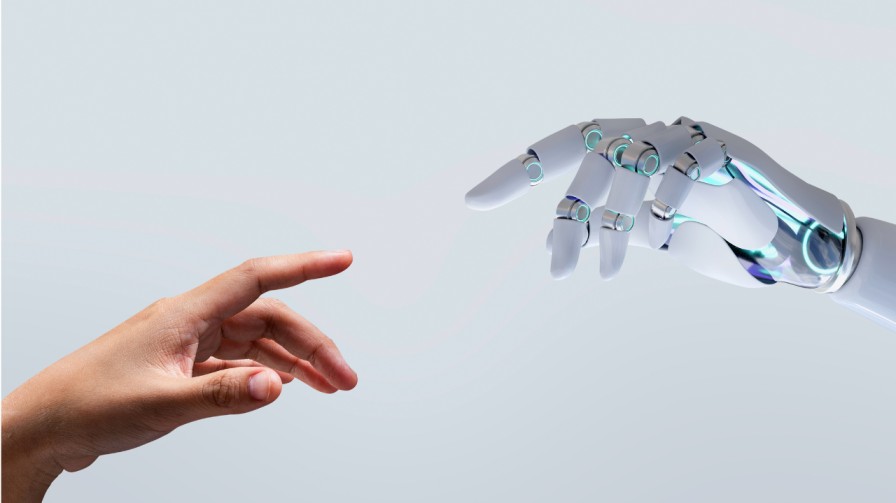Why Soft Skills Matter More Than Ever in the Age of AI

Let’s be honest: we’re living in a world where AI can write essays, analyze spreadsheets, edit videos, diagnose health issues, and even compose music.
But there’s one thing AI still can’t do: be deeply, authentically human.
In a world where hard skills are being outsourced to machines, your greatest advantage isn’t your coding ability or your degree—it’s your soft skills.
Yes, you read that right.
In this age of hyper-automation, empathy gives you an edge.
Yet, we don’t talk about it enough.
What Are Soft Skills—And Why Should You Care?
Soft skills are those qualities that can’t be measured on a spreadsheet but shape the way you work, lead, and connect:
– Emotional intelligence
– Communication
– Adaptability
– Critical thinking
– Time management
– Conflict resolution
– Creativity
– Collaboration
In the past, these were often labeled as “nice to have” or “bonus traits.”
Today? They’re essential.
Because here’s the truth: AI can execute tasks. But it can’t empathize, innovate, or lead with heart. Not yet—and not like a human.
Controversial Truth #1: Your Tech Skills Alone Won’t Save You
Think your Python skills or data analytics certificate will protect you forever? Think again.
A 2023 IBM report found that CEOs now rank soft skills as the most critical skills—above even technical know-how.
Why? Because technical skills have a limited lifespan.
AI can learn faster than any employee. It can master a software update in seconds. But managing a team during a crisis? Mediating tension on Zoom? Delivering bad news with compassion?
That’s human territory.
Controversial Truth #2: Top Talent Is Being Rejected for Lacking Basic Soft Skills
Here’s a real-world hiring dilemma that’s becoming alarmingly common:
“We had two candidates. One was a genius developer with a perfect résumé. The other had solid skills but incredible people skills. Guess who got hired? Not the genius.”
Why? Because collaboration, leadership, and emotional regulation matter more in today’s hybrid, AI-driven workplaces than raw talent.
Companies are done hiring brilliant minds who can’t work on a team, give feedback, or handle pressure without snapping.
It’s not just what you know—it’s how you move. How you lead. How you relate.
Controversial Truth #3: Some Professionals Are “Emotionally Underqualified”
Let’s go there.
There are incredibly educated professionals—engineers, doctors, data scientists—who struggle to lead teams, manage people, or keep clients because they never learned how to listen, speak with empathy, or handle disagreements maturely.
We’ve prioritized IQ for decades. We’ve glorified hustle.
But in 2025 and beyond? Emotional intelligence is your currency.
The age of the emotionally disconnected genius is ending—and thank goodness.
AI Has Hard Skills. You Have Soft Power.
AI can build a marketing campaign.
You can build a relationship with the audience.
AI can write a job post.
You can make someone feel something when they read it.
AI can summarize data.
You can tell a compelling story with it.
Magic? It’s not in what the tool can do—it’s in how you humanize it.
Real-World Shift: Hiring Trends Are Changing
Look at LinkedIn’s Top Skills Report.
Look at any forward-thinking startup’s hiring board.
Soft skills like “leadership,” “adaptability,” “resilience,” “cross-functional communication,” and “problem-solving” are climbing to the top of every list.
Even in tech.
Especially in tech.
We’re seeing more and more companies say things like:
“We can teach the tools, but we can’t teach attitude.”
“We’ll upskill on the job—but we need team players first.”
“Great résumé. Poor communication. Passed.”
Soft Skills Aren’t Soft. They’re Survival.
Let’s stop calling them “soft” as if they’re delicate or optional.
Try leading a remote team without strong communication.
Try pitching to investors without a good story.
Try navigating a global crisis without emotional regulation.
These are core skills now. Essential. Powerful. Ironically, they will keep humans employed while machines do the heavy lifting.
What This Means for You
Whether you’re a student, a creative, a professional, or someone still figuring it out, here’s what matters:
Work on your communication. Clear, thoughtful, human words are your secret weapon.
Practice active listening. Not hearing to reply—listening to understand.
Build your emotional intelligence. Learn to read the room, sense tension, and defuse it gracefully.
Stay adaptable. The world is changing fast. Those who flow with it thrive.
Final Thoughts: Humanity is the New Superpower
We’ve spent decades trying to keep up with machines.
Now we’re realizing our strength lies in what machines can’t do.
The future belongs to those who can lead with empathy, adapt with courage, communicate with clarity, and think creatively.
Soft skills aren’t a backup plan. They’re the foundation of your career longevity.
So yes—learn the tech. Stay sharp. Be efficient.
But don’t forget to also be human.
Because in the end, when everything else is automated, it’s the people who feel, connect, and inspire who will be irreplaceable.










